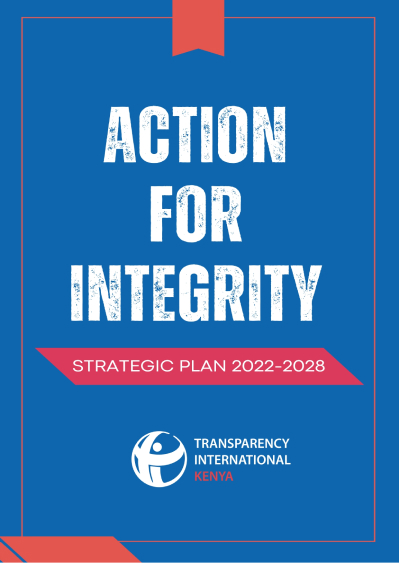By Titus Gitonga
To celebrate 10 years since the promulgation of the Constitution on August 27, 2010, our Executive Director Sheila Masinde joined other governance stakeholders to reflect on the gains made under the Constitution of Kenya. The virtual engagement which saw the Commemoration of the first 10 years of implementing Chapter Six of the Constitution enabled Kenyans to reflect on the strides made in the implementation.
The Constitution of Kenya, 2010 established a new threshold and value system upon which the social contract between the state and Kenyan citizens would henceforth be based on. The Constitution sought to dramatically change the country’s governance structure to “… a government based on the essential values of human rights, equality, freedom, democracy, social justice and the rule of law” as espoused under the Constitution’s preamble. The modalities for achieving the desired change in Kenya’s Governance system are set out throughout the Constitution and more specifically from a recognition of the people’s sovereignty under Article 1; Article 10 setting out the ‘National values and principles of governance’; and Chapter Six on ‘Leadership and Integrity’.
The provisions seeking to reform Kenya’s governance structure under the 2010 Constitution cannot be read in isolation as the provisions under Chapter Six are linked to many other provisions also speaking to Kenya’s aspirations on the general values and principles of good governance including the protection of human rights and provisions setting out specific offices, roles and responsibilities across the governance structure.
Progress in Implementation of Chapter Six
Parliament enacted two pieces of legislation as per the requirements of the Fifth Schedule to the Constitution: The Ethics and Anti-Corruption Act and the Leadership and Integrity Act “to give effect to, and establish procedures and mechanisms for the effective administration of Chapter Six of the Constitution”.
County Assemblies and the Senate have stepped up in the exercise of their mandate to oversee County Governments with impeachment processes being pursued against some Governors following accusations of contravening provisions of Chapter Six.
The Judiciary has recently pronounced judgements demonstrating progressive interpretation of the provisions on leadership and integrity, resulting in the barring of Governors who have been charged with corruption offences from accessing their offices. We have also registered more progress in the recovery of assets.
Shortcomings and Reform areas in the implementation of Chapter Six
The implementation and enforcement of Chapter Six provisions has not been without some setbacks. The Leadership and Integrity Act and other statutes do not have sufficient enforcement mechanisms to ensure that Chapter Six provisions are enforced. The agency tasked with the enforcement of Chapter Six is not vested with sufficient powers and resources to enforce accordingly. The laws are more observed in breach than compliance as a consequence of this weak enforcement structure. These challenges among others as outlined herein may be addressed as follows:
- Lack of a comprehensive mechanisms for determining compliance with Chapter Six of the Constitution for individuals seeking appointive and elective positions in State and public offices. To address these, a more elaborate mechanism needs to be put in place such as the formalization of the Chapter Six Working Group to participate in joint vetting processes for individuals seeking these positions with such processes being included at the political party and county level to ensure compliance to recommendations from the vetting institutions.
- Ambiguity previously expressed in judicial interpretations on enforcement of Chapter Six has also been a setback to effective enforcement of leadership and integrity provisions. The Supreme Court more recently declined to give the Kenya National Commission on Human Rights an advisory opinion and instead directed this to be pursued from the High Court. Courts need to dispense with this matter urgently for clear guidance on application and enforcement of the Chapter.
- Lack of clear procedures for appropriate disciplinary action, prosecution and removal proceedings for elected leaders who contravene Chapter Six. A distinction should be put in place within the law on the disciplinary/removal processes arising from a contravention of Chapter Six distinct from removal arising from criminal processes or those grounds outlined under any provisions for the removal from office of state and public officers.
- Bureaucratic procedures for conducting lifestyle audits including cumbersome procedures for access to wealth declaration information (of public officers) by relevant enforcement agencies. There is thus need to further enhance legal provisions on the grounds and process for lifestyle audits to be carried out with the supervision of the courts to avoid the abuse of such process for extrajudicial or political ends.
- Conflict of interest and abuse of office among other violations continue to manifest in public service including in appointive and recruitment, procurement and other key government processes at all levels of government. There is need to establish a clear legal framework for handling breaches of relevant codes at institutional level including legal penalties and criminal sanctions.


